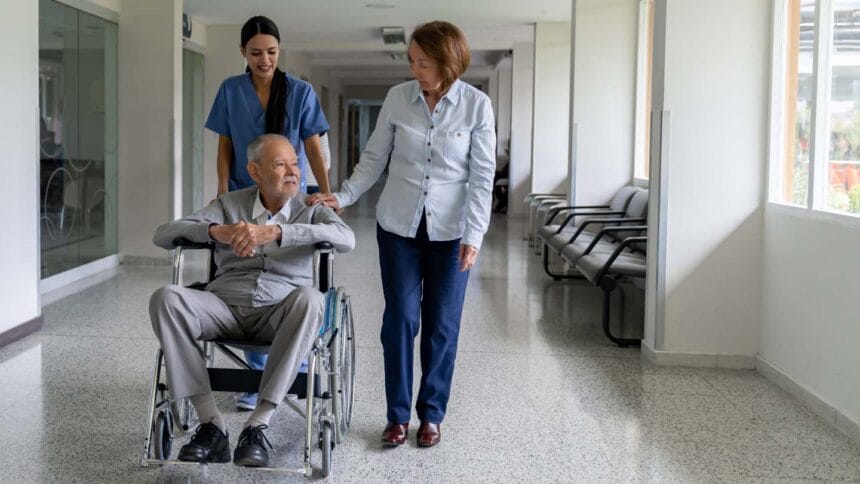
Here’s a way to make sure that people receive palliative care sooner rather than later: Make clinicians evaluate the patient for it when people are hospitalized.
That’s according to a team from the University of Pennsylvania, who published research on their pilot program Tuesday in the Journal of the American Medical Association. The team said asking clinicians to refer patients for palliative care consultations easily could be integrated into electronic medical records. This updated process would force healthcare professionals to evaluate if a consultation is recommended, and allow them to bypass it if the professional doesn’t think the patient needs it.
Palliative care, which aims to ease suffering in people with a disease but isn’t limited to end-of-life, is often overlooked during a hospital stay and can prolong discomfort. Palliative care can be useful for people who have conditions such as dementia, kidney failure or chronic obstructive pulmonary disease (COPD). These people may deal with breathlessness, anxiety and pain that could otherwise be avoided. Many long-term care providers offer palliative care services.
The team tried the default-order system at 11 hospitals with palliative care programs. The researchers assessed data from 24,065 people with hospital stays at least 72 hours. Of them, 10,313 were put into the intervention group while 13,752 received usual care. The mean age was 77.9 years old and 55.4% were women. The trial was conducted from 2016 to 2018. All of the people had advanced COPD, dementia or kidney disease.
When the researchers launched the initiative, palliative care consultation rates increased from 16.6% to 43.9%. While default orders for palliative care didn’t significantly reduce length of stay, the program sped up when patients received care. The initiative decreased the time they had to wait for a consultation by just over one day.
Even with the program in place, people only received palliative care consultations in about half of the cases. Of those who received consultations, the time needed for hospital care was shortened by nearly 10% on average. The default consultation orders were canceled by clinicians less than 10% of the time.
Implementing the default-order system seemed to raise the number of people transferred to hospice care, though there wasn’t an increase in deaths while in hospital, the study found.
“We found that a simple, pre-programmed order within the electronic medical record can get more palliative care to more people more quickly,” Kate Courtright, an assistant professor of critical care and palliative medicine and lead author, said in a statement.
“This strategy was low-cost and easily implemented in community hospitals, which is where most Americans receive their health care,” Courtright said.




